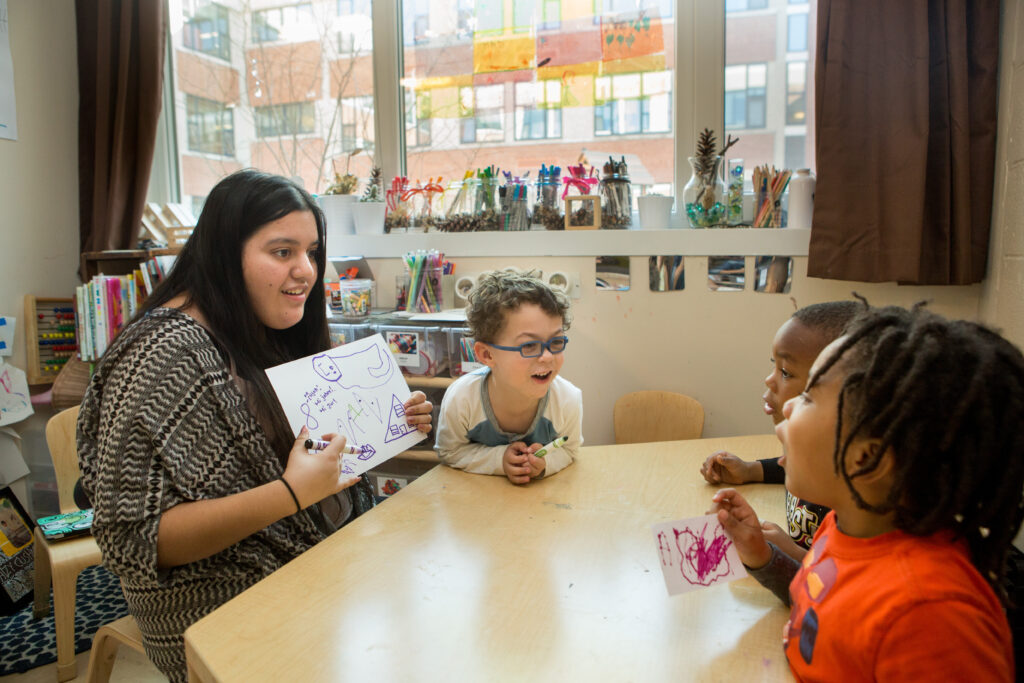State and federal investments in transitional kindergarten for all 4-year-olds — if done right — has the potential to transform education for all of California’s young learners, panelists said Thursday at EdSource’s roundtable on the topic.
“My hope is that this federal money will be a booster for us in California that will allow us to think big time, think long term,” said panelist Vickie Ramos Harris, director of educational equity for Advancement Project California. “It can help us stay on track for what we need to do for our babies and our early childhood workforce.”
“Universal Transitional Kindergarten: What Parents Need to Know,” a virtual roundtable webinar hosted by EdSource, covered topics such as early childhood brain development, equity and social justice, the teacher shortage, ideal teacher-student ratios and the pandemic’s impact on transitional kindergarten classrooms.
Panelists included policymakers, a TK teacher, advocates and academic researchers.
Transitional kindergarten has been a part of California schools for years. It was originally designed for 4-year-olds whose birthdays fall between Sept. 2 and Dec. 2 as a steppingstone between preschool and kindergarten. But amid calls for expanded preschool and other programs to benefit young children, California set aside $2.7 billion in its 2021-22 budget to expand the program to all 4-year-olds, not just those with fall birthdays.
The Biden administration has also prioritized early childhood programs and included money in the current spending bill to fund transitional kindergarten, preschool and other programs. The bill is awaiting a vote in Congress.
California’s plan, known as universal TK, will be phased in beginning in 2022 and is expected to include all of the state’s 4-year-olds by the 2025-26 school year.
Universal TK is considered important because it could help narrow the academic achievement gap between children whose families can afford high-quality preschool and those whose can’t, panelists said. Children who fall behind academically in the early years often have difficulty catching up and sometimes face long-term challenges as a result.
“There’s a real opportunity here,” said Samantha Tran, managing director for education policy at Children Now. “Not only does California have one of the largest achievement gaps in the country, but those gaps begin before children even walk through the door of kindergarten. That’s why this is so important.”
Deborah Stipek, former dean of the Graduate School of Education at Stanford University, noted that transitional kindergarten can benefit children’s brain development, but the program must be high-quality and led by trained teachers.
Finding enough trained teachers as well as teaching assistants for the TK expansion will be a challenge, she said. California is already experiencing a dire teacher shortage.
“The biggest concern, right now, is staffing,” she said. “We need to think more broadly about the issue of how we recruit and train the people who will take care of our youngest children.”
California will need an estimated 10,000 to 12,000 new teachers and 16,000 new teaching assistants as transitional kindergarten expands, Tran said.
Teaching assistants and a low teacher-to-student ratio will be key to making TK a success, said Paula Merrigan, a TK teacher in Castro Valley Unified. She said she occasionally has 26 children in a classroom, and even a part-time assistant makes a world of difference. It allows her to focus on children’s individual needs, such as motor skills, counting, learning to write their names or to help them navigate social and emotional difficulties, without the pressure of kindergarten standards.
Ultimately, that’s what TK should be about, Merrigan said.
“TK is geared more toward preschool. It’s a bridge between the two. In TK, students learn by playing, by doing, by exploration,” she said. “We call it the gift of time.”
Panelists were hopeful about the state and federal commitment to young children but acknowledged the hurdles ahead. Staffing shortages, in particular, will be a significant barrier to a smooth rollout of transitional kindergarten in all California schools.
“I am thrilled the Biden administration is prioritizing this,” Tran said. “But that doesn’t get California off the hook. We have a responsibility to map a path forward.”
For more on this EdSource Roundtable topic, please watch the video above.
To get more reports like this one, click here to sign up for EdSource’s no-cost daily email on latest developments in education.
